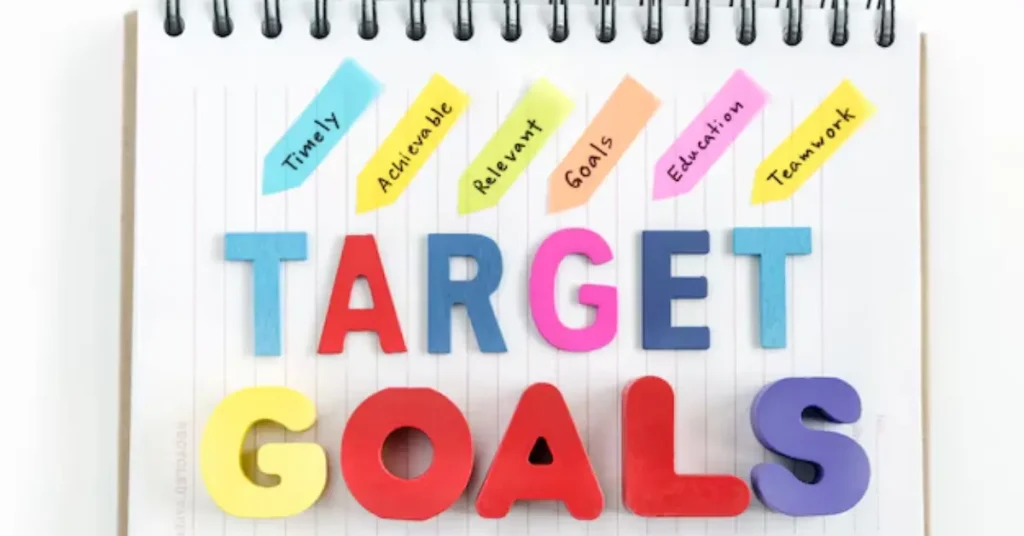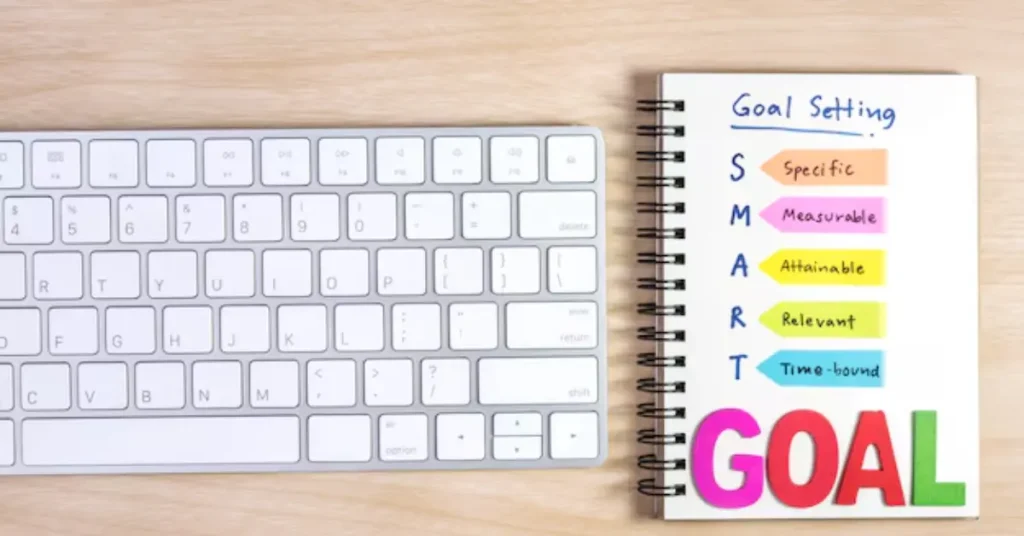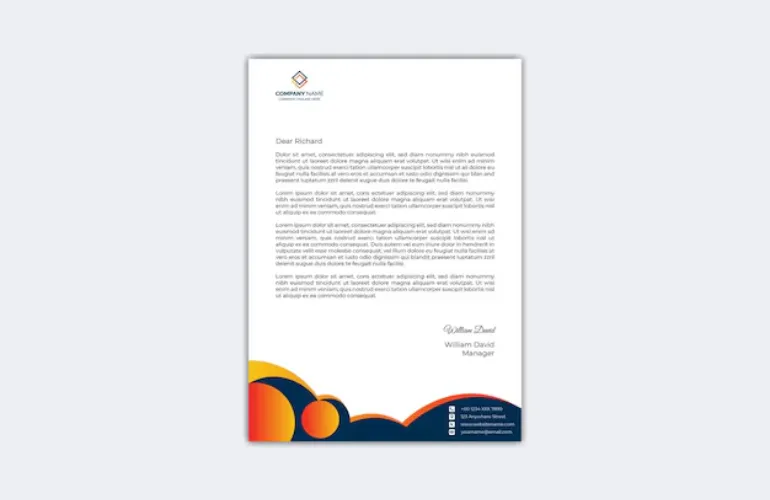Academic intentions may be defined as well-defined and tangible milestones that a learner establishes when planning his academic path. That is not a mere rhetoric of getting good grades; it indicates what one wants to become, how one wants to be transformed, or changed in the course of attaining the intended aim. The establishment of educational goals ensures that; students are keen, eager and encouraged towards achievement of their long-term /aims in terms of education. Regardless of whether you have learning goals for enhancing knowledge in a certain field, for acquiring a new kind of knowledge, or for employment in a certain field in the future, learning goals are important.
How to Set SMART Educational Goals
To ensure that your educational goals are effective, it’s crucial to make them SMART: This is an acronym of the key features that encompasses the following: S-M-A-R-T.
1. Specific: Where do you want to go? In other words, explicate your goals clearly and comprehensively. Rather than adopting a very generic goal, such as ‘improve my performance in school,’ make sure to go as far as the class level that you want to target.
2. Measurable: Make sure you can measure your progress on said goals or objectives. For example, set a short-term goal of bringing the grade one gets in mathematics from a B to an A at the end of the semester.
3. Achievable: Make sure you can measure your progress on said goals or objectives. For example, set a short-term goal of bringing the grade one gets in mathematics from a B to an A at the end of the semester.
4. Relevant:The goals should be also related to the general educational and career plans. If, say, you have a liking for science, ensure that you perform well in your science classes.
5. Time-bound: Assign your goals a timeline they should achieve. This helps to put pressure on you and gives you morale to work hard in order to achieve the set goals.
The Importance of Educational Goals in Personal Development
Such goals do and need not be academic only as they are very significant for students’ character building. Thus, just setting and working towards those goals helps the child develop discipline, time management, and problem-solving skills. These are characters that will help you not only inside class, but outside also in your day to day endeavors. Besides, the accomplishment of educational goals may lead to increased self-esteem, confidence and hence a chance to endure pressures.

Strategies to Achieve Your Educational Goals
1. Break Down Your Goals: As much as clients appreciate the authorities’ efforts, large goals can be quite challenging in a number of ways. Divide them into sections so that it would remain easy to manage and accomplish. For instance, if your activity involves writing a research paper, come up with due dates of selecting a subject, conducting your research and writing your outline and each section you will be writing.
2. Stay Organized: this may involve using planners, apps or calendars so as to be able to meet set deadlines of a given assignment. Effective planning averts time-related strains, the chances of which are high when there are many tasks to be done and little time left.
3. Seek Support: Do not be ashamed to seek assistance. Often help can come from teachers, classmates, or tutors and the extra help can give fresh perspective and helps to stay on track.
4. Stay Positive: It would be good to mark that attitude plays a crucial role in subsequent success; thus, one should always stay positive. However, do not forget that learning involves constructive and sometimes failures, so employ them as such.
5. Review and Adjust:As you go through your educational plans; ensure that you assess your progress from time to time. One note – if you find yourself off track, don’t be discouraged: you can modify the goal, or your approach to the goal. Read here why to set educational goals.
Overcoming Challenges in Achieving Educational Goals
If you read my previous articles, you understand not getting to one’s educational goals is not always an easy task. You may surely come across some issues like time limitation, lack of facilities, or maybe some questions are hard for you. But here, I have been able to identify that they are barriers but they can be avoided easily if one is willing to follow the following guidelines.
1. Time Management:This is why time-related issues are considered to be one of the most widespread concerns that learners遇 to face. It makes you prioritize your work and attend to those that are most urgent to avoid being distracted by other numerous tasks. Do not wait until the last minute to study and do your work, establish time tables for studying, having breaks etc.
2. Resource Limitations:There are also moments when a student can lack something, for example, textbooks or the internet connection. In such circumstances you should take advantage of your school library or you should consult your teachers or you can use other resources that are available free online.
3. Subject Difficulties: If you are having difficulty with a specific subject you could then enroll yourself with a study group or get a tutor. Yea, there are times when one has to have a change of perspective in order to make better sense of something.
How to Stay Motivated While Pursuing Educational Goals
Maintaining motivation in the long run can be a real problem, and that one is often rather slow. However, using them to remind yourself of the end goals that you want to achieve will go a long way in ensuring that you do not get distracted by the details.

1. Visualize Success: What may you do for yourself and gain in life when you attain the objectives you set? This can lead to a positive attitude towards approach or task which makes the student go on to complete the work.
2. Reward Yourself: Establish a pattern of incentives for the times you achieve certain educational targets. These can be as simple as getting a snack after some concentrated work, or as elaborate as getting a ‘hall pass’ for not completing homework after a complicated project.
3. Stay Connected: Make friends who hold similar schedules with your education and those who encourage you to achieve your dreams. Informing your goals to friends, family or instructors can assist you as they may motivate, support, and in most cases they are going to come up with other tips you have not perceived.
4. Reflect on Progress: Since launching this blog, I have learnt several lessons that I should have learned beforehand. One should remember their accomplishments once in a while, even if these accomplishments may appear minor to someone else.
1. What are educational goals?
Educational goals are a cornerstone of academic success and personal development. By setting SMART goals, overcoming challenges, and staying motivated, students can navigate their educational journey with purpose and confidence.
2. Why are educational goals important?
It makes them useful for increasing motivation, for planning a choice of working practices, and for accomplishing short-term and long-term goals related to the academic setting.
3. How can I set effective educational goals?
Use the SMART criteria: These measures are S.M.A.R.T Specific, Measurable, Achievable, Relevant to organizational goals, and have Time frame limitation. This guarantees that the goals, which will be set in the course of the planning process are realistic.
4. What should I do if I’m struggling to meet my educational goals?
Divide your goals into sub-tasks, consult with teachers or peers and monitor your goals regularly as well as make modifications where necessary.
5. How can I stay motivated to achieve my educational goals?
Condition yourself to see success, develop a plan to reward yourself, maintain contact with positive influences and contemplate on your progress.

Conclusion
Academic objective is one of the most imperative aspects in academic achievement as well as individual progress. Through the setting of the SMART goals, combating the obstacles, and motivation students are equipped with the tools in order to approach their educational process knowingly and confidently. Just remember that training and striving for the achievement of set educational goals is a process that prepares valuable life skills that are not associated only with the academic environment. Thus, the goals should be set high, the determination should be maintained stable, and with the basis made by education, a successful future will follow.




